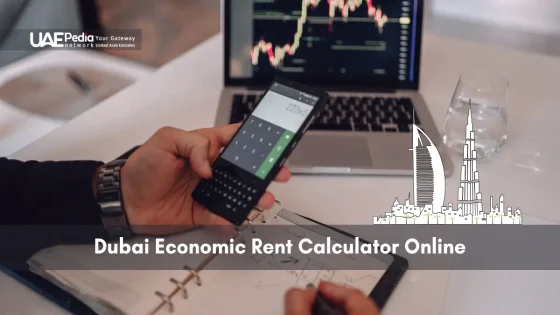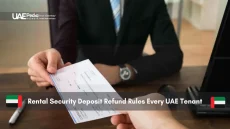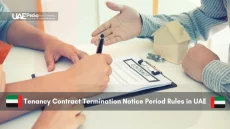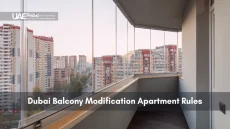Did you know over 50,000 real estate deals were finalized here last year? With skyline cranes outnumbering palm trees in some neighborhoods, securing your slice of this thriving market requires more than just a handshake. Getting your paperwork right isn’t bureaucracy—it’s your golden ticket to peace of mind.
Think of the Dubai Land Department as your trusty compass in this desert of opportunity. Their system turns complex legal steps into a clear path, ensuring every dirham and signature lands where it should. From initial agreements to that satisfying moment when your name appears on the title deed, each phase builds unshakable proof of ownership.
Why does this matter? Imagine buying a luxury apartment overlooking the Burj Khalifa, only to discover unclear paperwork leaves your investment floating in legal limbo. The registration framework here acts like an invisible shield—quietly protecting your stake in one of the world’s most fast-paced markets.
We’ll walk through everything you need: essential documents (passport copies aren’t enough), smart fee planning, and how to spot potential hiccups before they slow your journey. Consider this your backstage pass to doing it right—no dusty government office queues required.
- Proper registration transforms purchases into legally ironclad assets
- The Dubai Land Department streamlines steps from offer to ownership
- Transparency at every phase prevents future disputes
Understanding the Dubai Real Estate Landscape
Picture navigating a maze of mirrored towers—each gleaming structure promising opportunity, but only the right legal compass keeps you on track. The Emirate’s market thrives on clarity, with two key guardians ensuring fairness: the Dubai Land Department (DLD) and the Real Estate Regulatory Agency (RERA). Think of them as referees in a high-stakes game, verifying every play while updating rulebooks to match the city’s rapid growth.
Legal Foundations Made Simple
DLD oversees all land records like a meticulous librarian, while RERA acts as the rule-enforcer—approving projects, licensing agents, and resolving disputes. Together, they’ve built a system where investors from Kansas to Kyoto get equal protection. A recent guide to navigating local regulations highlights how these bodies turn complex paperwork into transparent checklists.
Your Keys, Your Terms
Freehold zones (like Palm Jumeirah) let foreign buyers own assets outright—imagine planting your flag permanently. Leasehold areas, common in older neighborhoods, work like long-term rentals with renewal options. Your choice impacts everything from resale value to renovation rights. Pro tip: Always check the DLD’s map of designated zones before falling for a view!
Whether you’re eyeing a downtown loft or a beachside villa, understanding these frameworks is like learning the local dialect—it turns hesitant steps into confident strides. Ready to decode which ownership model fits your goals?
Navigating the dubai property transaction registration process
Ever wondered how a simple signature transforms handshake deals into ironclad rights? In this fast-moving market, crossing T’s isn’t red tape—it’s your VIP pass to stress-free asset control. Let’s unpack why formalizing agreements matters and how to glide through each phase like a pro.
Why Paperwork Becomes Your Superpower
Think of official records as an invisible safety net. Without them, even the smoothest deals risk unraveling over time. Recent data shows 83% of ownership disputes stem from incomplete documentation—a statistic you’d rather avoid. Proper validation does three things: locks in your legal standing, creates public proof of transfer, and acts as your shield if questions arise later.
Milestones That Seal the Deal
From initial handshakes to holding title deeds, here’s what successful validation looks like:
| Phase | Action | Key Participants |
|---|---|---|
| Initial Commitment | Secure deposit payment | Buyer, Agent |
| Agreement Finalization | Sign sales contract | Both parties, Notary |
| Ownership Transfer | Submit documents to authorities | Land Department |
Pro tip: Bring two forms of ID and recent bank statements when meeting officials. Sellers should prep original ownership certificates—this speeds things up dramatically. Remember, the agency overseeing these steps acts as your neutral third party, ensuring no one gets lost in translation.
While it might feel like jumping through hoops, each step builds toward that golden moment when the keys truly become yours. Ready to turn “almost mine” into “undeniably mine”?
Preparing Required Documents and Checking Eligibility
What separates dreamers from owners? A crisp folder of paperwork. Gathering the right materials transforms “maybe” into “done deal”—let’s build your arsenal.
Your Essential Paper Trail
Think of these as your golden tickets:
- Passport copies with visa stamps (fresh prints, no coffee stains)
- Current title deeds—the seller’s proof of ownership
- Utility bills from the last 90 days (address verification matters)
- No Objection Certificate from developers (your green light to proceed)
First-time buyers often forget: banks need salary certificates too. Pro tip—make color copies of everything. One agent told us, “Neat files move twice as fast through approvals.”
Location Checks & Hidden Hurdles
Not all neighborhoods play by the same rules. Verify two things:
- Is the asset in a freehold zone? Check the official zoning map.
- Does the seller hold full rights? Request their ownership certificate.
| Certificate | Purpose | Validity |
|---|---|---|
| No Objection | Confirms developer approval | 30 days |
| Ownership | Proves seller’s legal rights | 6 months |
| Location | Verifies zoning eligibility | 1 year |
Found discrepancies? Address them before deposits change hands. We recommend creating a shared digital folder with your agent—it keeps everyone honest and organized. Remember: thorough prep today means smoother celebrations tomorrow.
Step-by-Step Guide to Completing the Transaction
Ready to turn handshake deals into concrete ownership? This phase transforms excitement into action—think of it as a relay race where smart prep meets smart execution. Let’s break down the essentials without drowning in jargon.
Initial Deposit and Payment Methods
Your first move? Locking in commitment. Most buyers use a manager’s cheque for deposits—it’s like a golden ticket showing serious intent. Picture Sarah, an investor from Chicago, securing her beachfront villa with a certified check. Why does this matter? Banks here treat these instruments as cashier’s checks, reducing fraud risks.
Payment plans vary: lump sums work for quick closings, while installments suit long-term strategies. Always confirm which method your seller accepts. Pro tip: Schedule payments through escrow services—they act as neutral referees until both sides fulfill conditions.
Signing the Sales Agreement and MOU
Here’s where promises get teeth. A Memorandum of Understanding (MOU) outlines basic terms—price, timelines, contingencies. Think of it as a roadmap before drafting the final contract. One agent compares it to “setting GPS coordinates before a road trip.”
The sales agreement then becomes your binding playbook. Key elements to verify:
- Exact payment dates and late penalties
- Included fixtures (appliances? custom shelving?)
- Clauses for unforeseen delays (permits, inspections)
“Always cross-reference the deed description with your agreement—mismatched square footage causes 40% of post-signing disputes.”
Final step? Sign with witnesses present. Digital platforms now allow e-signatures, but physical copies still rule for high-value purchases. Keep duplicates in fireproof storage—your future self will thank you.
Legal Considerations and Regulatory Safeguards
What’s the secret ingredient in every successful purchase? Knowing where your dirhams flow. Hidden costs can turn dream deals into budget nightmares faster than a sandstorm rolls in. Let’s decode the financial fine print so you walk in prepared.
Understanding Registration Fees and Taxes
Think of fees as your investment’s foundation stones. They typically range from 1-7% of the asset’s value, depending on location and type. Here’s how it breaks down:
| Fee Type | Calculation Basis | Responsible Party |
|---|---|---|
| Registration | 2% of sale value | Buyer |
| Transfer | 0.125% + admin charges | Seller |
| Service | Varies by developer | Both parties |
| Mortgage Admin | 0.25% of loan amount | Borrower |
Buyers usually cover registration costs, while sellers handle transfer fees. Developers often add service charges for maintenance—review these annually. Mortgage seekers? Banks require insurance coverage, adding 0.5-1% to your total.
Local advisors swear by three rules:
- Verify all fees through the DLD’s online portal
- Request written breakdowns from developers
- Budget 5% extra for unexpected charges
“Always request the fee breakdown in writing—verbal estimates vanish like mirages.”
Rights protection starts with transparency. The DLD’s fee calculator tool lets you input numbers and see real-time totals. Bookmark it. Double-check mortgage terms—some lenders bundle fees into loans, inflating long-term costs.
Pro tip: Attend a free DLD webinar before signing anything. They’re like financial weather reports—help you spot storms before they hit.
Visiting the Dubai Land Department: What to Expect
Imagine walking into a building where sand dunes meet digital efficiency—your gateway to hassle-free ownership. The DLD operates like a Swiss watch, blending Emirati hospitality with precision. We’ve watched first-timers transform from nervous newcomers to confident owners in under an hour. Here’s how to join their ranks.
Your Paperwork Playbook
Think of required documents as your backstage pass. Sarah, an investor from Miami, swears by her “golden trio”:
| Essential Item | Purpose | Pro Tip |
|---|---|---|
| Passport & Emirates ID | Identity verification | Bring originals + 2 copies |
| Title Deed (Seller) | Ownership proof | Check issue date |
| Payment Receipts | Transaction history | Highlight final amounts |
| NOC from Developer | Approval clearance | Request digital copy |
Morning appointments (8-10 AM) typically see shorter queues—arrive 15 minutes early. The process flows like this: document check → fee payment → biometric verification → confirmation SMS. Staff often share this insider tip: “Complete online pre-checks to skip counter waits.”
Land Department visits feel more like concierge service than bureaucracy. One agent chuckled, “We’re used to handing out water bottles, not red tape.” Still, verify fee calculations using their official app before arriving. Changes in designated areas sometimes affect requirements—double-check your zone’s rules 48 hours prior.
“Treat your DLD visit like a coffee catch-up—come prepared, and it’s over before your latte cools.”
Pro tip: Book slots via the ‘Dubai REST’ app on Sundays when new weekly appointments open. Bring a power bank—free charging stations keep devices juiced while you wait.
Post-Registration Steps for Securing Your Investment
Congratulations—you’ve crossed the finish line! But like storing gold in a vault, protecting your new asset requires a few extra moves. Let’s ensure every detail shines brighter than Burj Khalifa’s lights at sunset.
Verifying Registration Accuracy
Your updated title deed is your treasure map—check it twice. Look for:
- Exact spelling of your name and passport number
- Accurate purchase price and square footage
- Proper zoning classification matching your certificate
One investor spotted a typo in their unit number—caught early, it saved months of headaches. Use the Land Department’s online portal to cross-reference digital records. Found discrepancies? Their resolution team responds faster than falcon swoops.
| Common Errors | Where to Check | Fix Timeline |
|---|---|---|
| Name misspellings | Page 1, Section B | 3 business days |
| Incorrect fees | Payment summary | Immediate adjustment |
| Address mismatches | Location map annex | 1 week survey |
“Treat your deed like a newborn—inspect every finger and toe.”
Updating Records with Utility Providers and Insurance
Now make the community recognize your rights. Start here:
- Forward electricity/water bills to your email
- Add the asset to your home insurance within 14 days
- Notify strata management about access permissions
Pro tip: Snap photos of meter readings during handover—it settles billing disputes. For insurance, highlight unique features (smart systems, security upgrades) to maximize coverage value.
Keep all documents in a fireproof lockbox—or better yet, encrypted cloud storage. Schedule a calendar reminder to review policies annually. Remember: organized records turn future sales into smooth sailings, not sandstorms.
Final Thoughts on Achieving a Smooth Property Transaction Journey
You’ve just mapped the entire trail from first documents to final signatures. Think of this process like packing for a desert expedition—every checklist item matters, but the reward is crystal-clear ownership under endless blue skies.
Here’s your compass recap: Start with title verification and those crucial steps outlined by the DLD. Double-check every agreement clause like you’re deciphering treasure coordinates. Smart buyers and sellers know that attention to location details and service fees prevents mirages in your paperwork.
Remember three golden rules: Keep documents crisper than a sunrise over Al Qudra Lakes. Treat mortgage terms and transfer dates like VIP reservations. And always—always—verify rights through official channels.
This roadmap turns what-ifs into confident strides. Bookmark these tips as your digital checklist, and consider connecting with local experts for personalized navigation. Your investment deserves this level of care—now go enjoy that view from your new vantage point!
The Dubai Land Department (DLD) regulates all property dealings. They ensure compliance with laws, handle registrations, and issue title deeds—think of them as your ultimate paperwork guardians.
Yes! Freehold ownership allows non-residents to fully own properties in designated areas like Dubai Marina or Downtown. Leasehold options (long-term leases up to 99 years) apply in other zones.
With documents prepped? Often just hours at the DLD office or through their online portal. Delays usually happen if paperwork’s incomplete or payment snags arise.
This golden ticket from the developer confirms no pending fees or legal issues. Without it, you’re stuck—always request this early to avoid last-minute panic.
The 4% of the purchase price is the big one. But budget for admin fees (around AED 4,000), agent commissions, and maybe a mortgage registration fee if you’re financing.
Not always! The DLD’s digital services allow remote processing via Power of Attorney. Just ensure your rep has certified authorization to act on your behalf.
Check the DLD app or website instantly post-registration. Spot errors? Flag them immediately—they’ll guide you through corrections (and yes, typos happen).
The Memorandum of Understanding (MOU) locks in terms. Breach it, and penalties apply—usually forfeiting the deposit. Courts here take contract violations seriously.
Not legally required, but wise for mortgages or high-value homes. Emirates like stability—insuring against fire, floods, or liability claims? That’s just smart exploring.
Nope—DEWA needs that title deed first. Once registered, swing by their office with your ID and deed. Pro tip: set up autopay to avoid desert-heat disconnections!


















